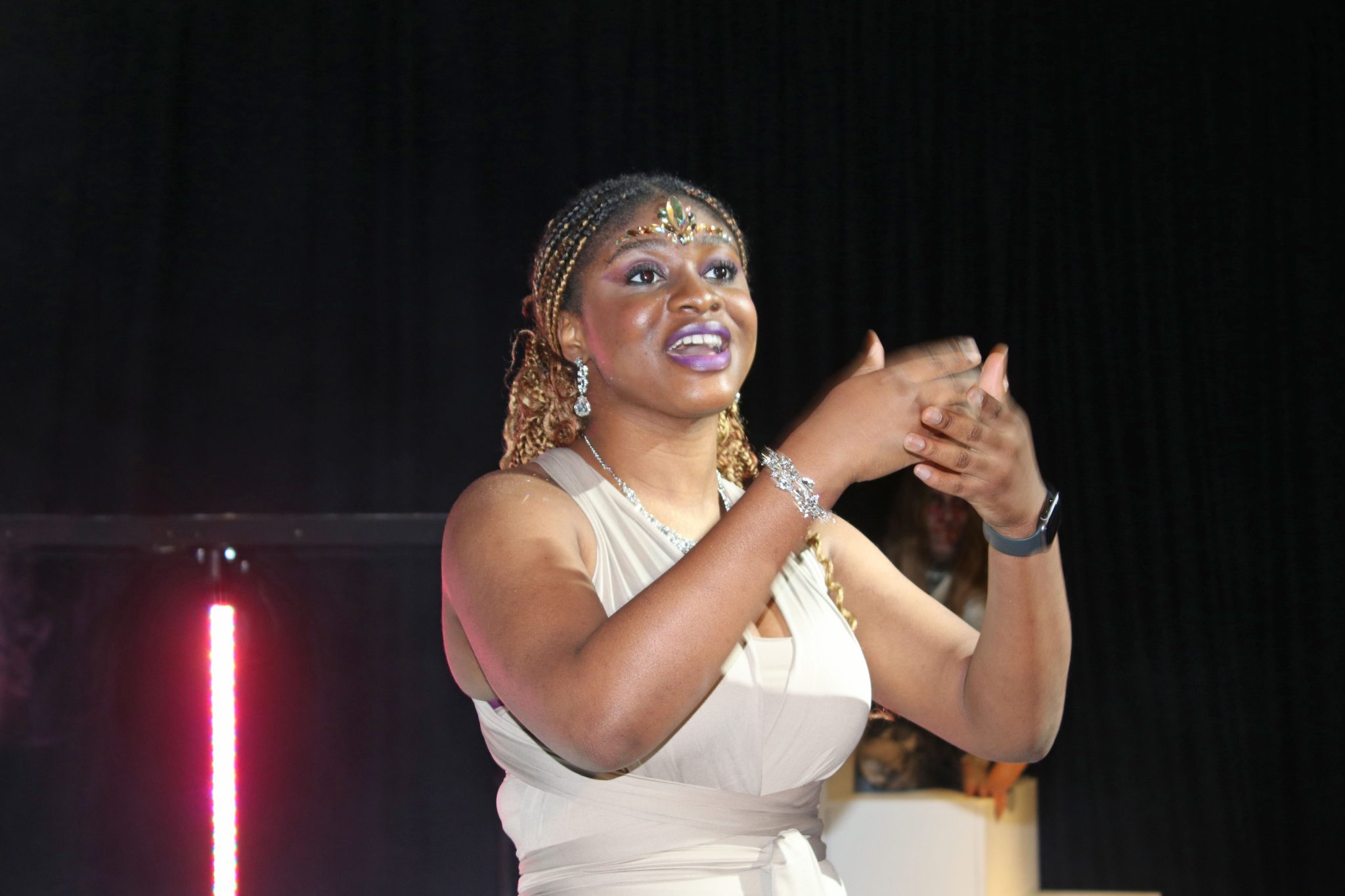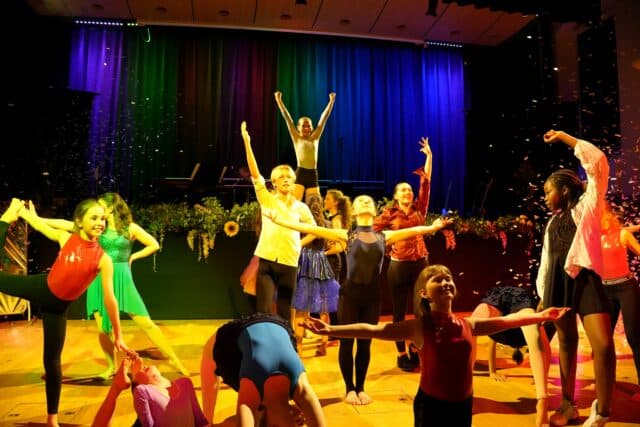Ancient Athens was no stranger to plague. In 430BC, at the height of their power, tens of thousands of Athenians lost their lives in an epidemic that claimed almost a quarter of the population. The historian Thucydides, an eyewitness, reported that “dying men lay tumbling one upon another in the streets”. The event left its mark on their culture. A year later, the first play in one of the two surviving trilogies from antiquity, Oedipus the King, was performed: a story about a legendary ruler willing to do anything to save his city from the plague.
These ancient Athenians would therefore have had a great deal of sympathy for the cast and crew of The Murders at Argos, a modern adaptation by David Foley of the other surviving Greek trilogy, the Oresteia. They have battled through last-minute cast changes and disrupted rehearsals to bring this ancient tragedy to the modern stage. Nor would that stage have been entirely foreign to the Athenians: at first sight, the audience are greeted with a raised dais not unlike the Greek orchestra, and smoke hangs in the air as though sacrificial offerings have just been burned. The stage is white, the curtains black. The audience are prepared for the play’s core themes: the binary oppositions between life and death, love and hatred, purity and pollution.
Men and women, and the family relationships that spiral out from them in a tangled web, form one of these critical oppositions in the play. Masculinity is championed by Seumas Macleod as Aegisthus in an intentionally insecure performance. He flashes through all the stages of fragile masculinity, showing off the performatively martial vambraces in his costume while pretending not to be a coward. His foil, Agamemnon, has the opposite flaw: Luke Bermejo brings to the role such a clear image of a man completely in love with his own presence that it is easy to understand why he never suspected danger. Charlie Holt’s Menelaus attempts to find a middle way, a modern way, but squeezes in only by greasing himself up: he oozes around the stage with the timeless slime of a consummate politician.
Arrayed against these stand Clytemnestra, played by Anna Valieva with a shocking intensity across a kaleidoscope of emotion, and Helen, imparted with the appropriate vanity and venality by Lois Lillie. Where the men swagger, the women sparkle: all of the costume and makeup team, including Amelia Jallot, Alexa Neglen, Sophie Clark, Ella Crawford, Caroline Bartram, Seren Callaghan, and Mrs Rosi Green, are to be commended on the artful use of glitter and gold jewellery so that the women really did resemble Schliemann’s Mycenaean princesses. Each wear a monochromatic dress to symbolise their most important trait: Clytemnestra drenched in scarlet marital blood, Helen elevated by a regal purple, and even Chrysothemis, played with a cringing credulity by Meely Thesiger, draped in gentle rose to mourn her battered innocence.
Yet poised between all, bold in electric blue and a rebellious leather jacket, Mojo Ojo stands tall as Electra. Continually defiant, Mojo nevertheless brought subtlety to the role: the audience is never quite sure whether to warm to her idealism or fear her steady progression in the same manipulative footsteps as her mother. Her opposite number, Hugo Wilkinson – who had mere hours to prepare for the role of Orestes – matches her surety with doubt, her strength with weakness, and her admirable calm with touching vulnerability. As a mentor to both, Ifunanya Ujam brings a fitting serenity and eccentricity to the role of Iphigeneia, as though her contact with the gods has made it difficult for her to relate to earthly matters. Orestes is a continual victim, loaded with responsibility he simply lacks the means to bear, and the impotent, traumatised rage of his stolen youth is thrilling to behold.
Youth opposes age, and both Liv Thompson-Brown as the chorus leader and Seb Crabb as Tyndareus embody senility’s gendered halves in this production. Their makeup, physicality, and charm combine effectively to create comedy for Liv and the austerity for Seb, but for both there is a sense of history, of regret, and of faded grandeur. They will not have the only sore backs tonight, however: the Furies, Emily Mitchell, Max Thesiger, and Jacob Secker, are animalistic in their movement, prowling like a pack of starving dogs around a revolving stage deftly operated by Jason Kitcatt.
The entire crew, overseen by Mr Keiran Kerswell, acquit themselves excellently, with unsettling audio cues straight from the horror genre (designed by Mr Mark Bishop and Mr Stanley Richardson), stark lighting that cycles through the colours of the women’s dresses (operated by James Riley and Joshua Crockett, along with Leo Skingley on spotlight), and endless spills of blood and its symbolic substitute – wine – to be mopped up by the stagehands: Josh Dixon, Phoebe Witten, Marigold Jones, Alex McWilliam, and Ray Wang.
No less captivating than the principals were the two chorus: the laddish groupthink of Henry Elsom and Rhys Entwistle juxtaposed with the thoughtfulness of Heeta Vijaykumar, Sophie Matthews, Sophie Clark, and Nikita Dhar. Their lines were delivered with impressive force and clarity, despite many being spoken in unison.
While the themes of Miss Rhiannon Johnson’s production may be polarised, its reception was certainly not. The Murders at Argos truly does justice to its layered source material. Forged in the crucible of crisis, it is entertaining, evocative, and equiponderant on ideas ancient and modern.
By Teacher of Classics, Mr Jamie Hardie





